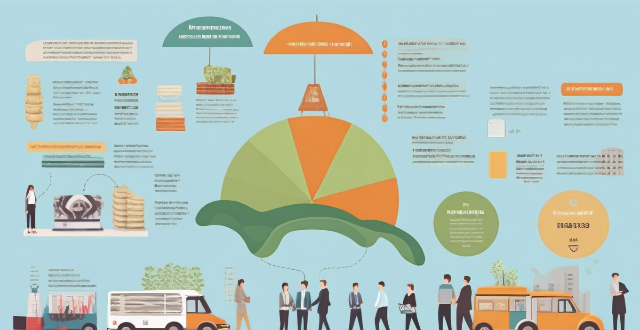Important Assets

What is the process for distributing assets after someone dies ?
The process for distributing assets after someone dies is known as probate. It involves filing the will, notifying beneficiaries and heirs, inventorying assets, paying off debts and taxes, and then distributing the remaining assets according to the terms of the will or state law if there is no will. The executor or administrator is responsible for managing the deceased person's estate and all potential beneficiaries and heirs must be notified of their rights and responsibilities.

How do I ensure that my digital assets are handled after my death ?
Managing digital assets after death requires careful planning and regular updates to keep pace with technological changes. This guide outlines steps to take to ensure your online presence is handled according to your wishes, including inventorying assets, choosing a digital executor, including assets in your will, using digital legacy services, setting up access and instructions, and reviewing and updating plans regularly. By following these steps, you can protect your online legacy and provide clarity for your loved ones.

How can I protect my assets from creditors or lawsuits ?
When it comes to protecting your assets from creditors or lawsuits, there are several strategies you can consider. These strategies aim to safeguard your wealth and ensure that you have financial security in case of legal actions against you. Here are some key steps to take: ### 1. **Create a Trust** A trust is a legal entity that allows you to transfer assets into it for the benefit of a third party, known as the beneficiary. By placing your assets into a trust, they are no longer directly owned by you, making them less vulnerable to creditors or lawsuits. There are different types of trusts, such as: - Revocable Living Trust: You can modify or revoke this type of trust during your lifetime. - Irrevocable Trust: Once created, you cannot change or cancel this type of trust. - Special Needs Trust: Designed for individuals with special needs, this trust helps them qualify for government benefits while still having access to funds for other expenses. ### 2. **Establish Limited Liability Entities** Forming limited liability companies (LLCs) or corporations can help protect your personal assets from business-related debts and lawsuits. These entities act as separate legal entities, meaning that their liabilities do not extend to your personal finances. Examples include: - Single Member LLC: Suitable for sole proprietors looking to limit their personal liability. - Multi-Member LLC: Ideal for partnerships where multiple members contribute to the business. - S Corporation: Offers pass-through taxation and limits shareholder liability to their investment in the company. ### 3. **Purchase Insurance** Having adequate insurance coverage is essential in protecting your assets from unexpected events. Make sure you have the following types of insurance policies: - Liability Insurance: Covers damages or injuries caused by you or your property. - Umbrella Policy: Provides additional liability coverage beyond your standard policies. - Homeowner's Insurance: Protects your home and belongings from damage or loss due to various perils. - Auto Insurance: Covers damages and injuries related to vehicle accidents. ### 4. **Diversify Your Assets** Spreading your wealth across different asset classes can help minimize the impact of any single lawsuit or creditor claim. Consider investing in: - Real Estate Investment Trusts (REITs): Allows you to invest in real estate without owning physical property. - Stocks and Bonds: Diversify your portfolio with various securities to reduce risk. - Precious Metals and Cryptocurrencies: Non-traditional assets that may offer protection against market volatility. ### 5. **Consult with Professionals** Before implementing any asset protection strategy, it's crucial to consult with professionals who specialize in this area, such as attorneys, financial advisors, and accountants. They can guide you through the process, ensuring that you comply with all legal requirements and maximize the effectiveness of your chosen strategies.

Do I need a lawyer to create an estate plan ?
Estate planning is important for ensuring that your assets are distributed according to your wishes after you pass away. While it is possible to create an estate plan without a lawyer, working with a legal professional can provide numerous benefits such as legal expertise, customized plans, and peace of mind. However, if you have a simple estate with few assets and no complicated family dynamics, creating a basic estate plan using online tools or templates may be sufficient. It is still important to consult with a lawyer to ensure that your plan meets all legal requirements and addresses any potential issues.

What is the difference between a will and a trust ?
The text discusses the differences between wills and trusts in estate planning, highlighting key areas where they diverge. A will is a legal document outlining distribution wishes for assets after death, requiring witnesses and taking effect posthumously. It allows control over assets during one's lifetime and goes through probate, a public process. Wills are flexible and generally less costly to create but offer no tax benefits. Conversely, a trust involves transferring property to a trustee for beneficiaries, with creation and effectiveness varying. Trusts can avoid probate, offering privacy and potential tax benefits but at a higher initial cost and less flexibility, especially if irrevocable. Choosing between them depends on individual needs and preferences.

How can women protect their assets and ensure long-term financial security ?
The article provides a list of strategies that women can employ to ensure their financial security over the long term. These include building an emergency fund, investing in retirement accounts, purchasing life insurance, creating a will, considering long-term care insurance, educating oneself about finance, working with a financial advisor, and prioritizing career development. Each of these steps is crucial in its own way for safeguarding one's assets and ensuring financial stability.

How do I create a comprehensive estate plan ?
Creating a comprehensive estate plan is essential to ensure your assets are distributed according to your wishes after you pass away. Here are some steps to help you create a comprehensive estate plan: 1. Determine your goals and objectives, such as who you want to inherit your assets and how you want them distributed. 2. Gather information about all your assets, including real estate, bank accounts, investments, life insurance policies, and personal property. 3. Choose beneficiaries for your assets, including individuals, charities, or trusts. 4. Consider tax implications, such as federal and state estate taxes, gift taxes, and generation-skipping transfer taxes. 5. Create legal documents such as a will, power of attorney, healthcare proxy, and living will to ensure your wishes are carried out in case of incapacity or death. 6. Set up trusts to manage your assets during your lifetime and distribute them after your death. 7. Review and update your plan regularly to ensure it remains current with changes in your life. Working with a qualified professional can help ensure that your estate plan meets your needs and achieves your desired outcomes.

How do DeFi tokens work ?
Decentralized Finance (DeFi) tokens are digital assets operating on blockchain technology, designed to facilitate financial transactions without intermediaries. These tokens can represent various assets like currencies, commodities, and cryptocurrencies. Key features of DeFi tokens include decentralization, smart contracts, and interoperability. They work through token issuance, utility within their respective projects or platforms, and governance mechanisms allowing holders to vote on important decisions related to the project's development. Benefits of DeFi tokens include accessibility, transparency, and innovation in financial products and services.

What is probate, and how can I avoid it ?
This text discusses probate, the legal process of transferring a deceased person's assets to their heirs or beneficiaries. It explains why many choose to avoid probate, which can be time-consuming and costly, and outlines various methods for doing so, such as creating a revocable living trust, joint tenancy with right of survivorship, pay-on-death accounts, transfer-on-death designations, gifting assets during one's lifetime, designating beneficiaries on retirement accounts and life insurance policies, using a will with a probate avoidance clause, and considering state-specific strategies. The text emphasizes the importance of careful planning and consulting professionals to ensure assets are distributed according to one's wishes without court interference.

What documents are typically included in an estate plan ?
An estate plan is a collection of legal documents that outline how an individual's assets and property will be distributed after their death. These documents can include various types of legal instruments, each serving a specific purpose in the estate planning process. Here are some of the most common documents included in an estate plan: - Last Will and Testament: A legal document that states how a person's property and assets will be distributed after their death. - Durable Power of Attorney: A legal document that grants authority to another individual (agent) to act on behalf of the principal in financial matters. - Healthcare Power of Attorney: A legal document that designates someone to make healthcare decisions on behalf of the principal if they are unable to do so. - Living Will: A document that provides instructions about your wishes for medical treatment and end-of-life care. - Trusts: A legal entity that holds and manages assets for the benefit of one or more individuals (beneficiaries). - Beneficiary Designations: The process of naming who receives the proceeds of a bank account, retirement account, or life insurance policy upon the account holder's death. - Letter of Intent: A non-legal document that provides additional information about personal wishes, sentimental items, and instructions for final arrangements.

What are the most important factors to consider when purchasing insurance ?
When purchasing insurance, important factors to consider include the type of coverage needed, deductibles, premium costs, insurer reputation, and policy terms and conditions. It's important to choose a policy that provides adequate coverage for your specific situation while also considering cost and provider reputation.

Why is it important to have an estate plan ?
Having an estate plan is crucial for ensuring your wishes are honored, minimizing family disputes, and providing clarity on handling affairs.

How can I optimize storage space on my iPhone without deleting important files ?
Managing storage space on your iPhone is crucial for maintaining its performance and ensuring that you have enough room for new apps, photos, and other files. However, deleting important files is not always the best solution. In this guide, we will explore some effective ways to optimize storage space on your iPhone without compromising your important data. Clearing app cache can free up storage space without affecting your important files. Reviewing large files such as old videos or music tracks and deleting the ones you don't need can also help free up space. Optimizing photo storage by selecting "Optimize iPhone Storage" in the Photos settings can save space without deleting any important memories. Managing messages by selecting a shorter duration for keeping messages can free up space without affecting recent conversations. Offloading unused apps can help free up space without deleting any important data associated with those apps. By implementing these strategies, you can ensure that your iPhone runs smoothly and has enough space for new content while keeping your important data safe and accessible.

Why is climate risk management important for businesses and organizations ?
Climate risk management is crucial for businesses and organizations due to its impact on operations, financial implications, reputational considerations, legal and compliance obligations, and ethical responsibilities. Supply chain disruptions, physical asset damage, regulatory changes, insurance costs, investor pressure, capital at risk, public perception, stakeholder engagement, leadership opportunities, compliance with laws, contractual obligations, sustainability goals, and intergenerational equity are all affected by climate change. Proactive climate risk management can protect assets, maintain investor confidence, uphold reputation, meet compliance requirements, and fulfill ethical responsibilities to current and future generations.

What is tax planning and why is it important ?
Tax planning is the process of organizing one's financial affairs to minimize tax liability and maximize after-tax returns. It involves analyzing current tax laws, understanding deductions, credits, and exemptions, and applying them to personal or business finances. Tax planning is important for legal compliance, maximizing wealth, avoiding surprises at tax time, retirement planning, estate planning, charitable giving, income management, risk mitigation, business strategy, international considerations, and peace of mind. It is an essential part of financial management for both individuals and businesses looking to build and preserve wealth over time.

What is risk management and why is it important ?
Risk management is a systematic approach used by organizations to identify, assess, and prioritize potential risks that may impact their objectives. It involves implementing strategies to monitor and control these risks effectively. The goal of risk management is to minimize the probability and impact of negative events and maximize the opportunities for positive outcomes. The importance of risk management includes mitigating uncertainty, enhancing decision-making, compliance and regulatory requirements, protection of reputation, financial performance, and promoting innovation. Effective risk management is crucial for any organization looking to sustain its operations, protect its assets, enhance decision-making, maintain compliance, preserve its reputation, and improve its financial performance. It enables companies to navigate challenges proactively and capitalize on opportunities while minimizing the impact of potential threats.

Why is it important to have a basic understanding of finance ?
Having a basic understanding of finance is crucial for making informed decisions about money, planning for the future, and managing financial risks effectively. It helps individuals evaluate investment options, manage debt wisely, create a budget, save for retirement and education expenses, build wealth over time, protect against unexpected events with insurance, plan estates, and minimize investment risks through diversification. Overall, financial literacy improves financial well-being and peace of mind.

What are the best foods to eat during pregnancy ?
During pregnancy, it is important to consume a balanced diet that provides all the necessary nutrients for both mother and baby. Some of the best foods to eat during pregnancy include fruits, vegetables, protein sources, whole grains, dairy products, iron-rich foods, omega-3 fatty acids, and water. It is also important to avoid certain foods and limit caffeine intake.

What is the significance of rebalancing an investment portfolio ?
Rebalancing an investment portfolio is a crucial aspect of maintaining a well-diversified and risk-appropriate investment strategy. It involves periodically adjusting the asset allocation of your portfolio to align with your original investment goals and risk tolerance levels. The significance of rebalancing an investment portfolio includes maintaining diversification, controlling risk exposure, and staying disciplined. The frequency of rebalancing depends on various factors such as your investment goals, risk tolerance, and market conditions. Rebalancing an investment portfolio involves several steps, including determining your target allocation, evaluating your current allocation, selling off high-performing assets, reinvesting proceeds into underperforming assets, and reviewing and adjusting your portfolio regularly.

How do I create a diversified portfolio in the stock market ?
Creating a diversified portfolio is an essential strategy for mitigating risk and maximizing returns in the stock market. Here are some steps to help you create a diversified portfolio: 1. Determine your investment goals, including factors such as your risk tolerance, investment horizon, and financial objectives. 2. Allocate assets across different asset classes, such as stocks, bonds, cash, and other securities. 3. Select securities within each asset class that align with your investment goals and are not highly correlated with each other. 4. Rebalance your portfolio regularly to maintain your desired asset allocation. 5. Monitor the performance of your portfolio and make adjustments if necessary. By following these steps, you can create a well-diversified portfolio that aligns with your investment goals and helps you achieve long-term financial success.

How does a co-signer affect my mortgage application ?
A co-signer is a person who signs a loan application along with the primary borrower. The co-signer agrees to take on the responsibility of repaying the loan if the primary borrower fails to do so. In this article, we will discuss how a co-signer affects your mortgage application. The credit score of both the primary borrower and the co-signer plays a significant role in determining the eligibility for a mortgage loan. A co-signer with a good credit score can improve the chances of getting approved for a mortgage loan. However, if the co-signer has a poor credit score, it may negatively impact the loan approval process. The income and debt-to-income ratio (DTI) of both the primary borrower and the co-signer are also important factors that lenders consider when evaluating a mortgage application. If the co-signer has a high income and low DTI, it can help strengthen the application and increase the chances of approval. On the other hand, if the co-signer has a low income or high DTI, it may negatively impact the loan approval process. Lenders also consider the employment history of both the primary borrower and the co-signer when evaluating a mortgage application. A stable employment history can demonstrate financial stability and reliability, which can positively impact the loan approval process. If the co-signer has a stable employment history, it can help strengthen the application and increase the chances of approval. The assets and liabilities of both the primary borrower and the co-signer are also taken into consideration by lenders when evaluating a mortgage application. If the co-signer has significant assets and few liabilities, it can help strengthen the application and increase the chances of approval. However, if the co-signer has significant liabilities or limited assets, it may negatively impact the loan approval process. In conclusion, a co-signer can have a significant impact on your mortgage application. Their credit score, income and DTI, employment history, assets, and liabilities are all factors that lenders consider when evaluating a mortgage application. It is important to choose a co-signer who has a good credit score, stable employment history, and low DTI to increase the chances of getting approved for a mortgage loan.

How do global economic trends affect personal wealth growth strategies ?
Global economic trends significantly influence personal wealth growth strategies by affecting factors such as interest rates, inflation, economic growth, global trade, and political stability. Understanding these trends helps individuals make informed decisions about investments and financial planning.

Why is it important for women to have a solid understanding of financial planning and wealth management ?
The importance of financial planning and wealth management for women is underscored by the need for financial independence, empowerment, and long-term stability. Women face unique challenges such as longer life expectancies and potential career interruptions, making it crucial for them to be financially savvy. Understanding key areas like budgeting, investing, insurance, and retirement planning can help mitigate risks and ensure economic security. Financial literacy is not just about managing money but also about gaining confidence, independence, and the ability to lead a fulfilled life.

How can I protect my growing wealth from market fluctuations ?
Market fluctuations are a natural part of any investment journey. However, as your wealth grows, it becomes increasingly important to implement strategies that can help protect your assets from the ups and downs of the market. Here's how you can do it: - Diversify Your Portfolio - Use Hedging Strategies - Stay Updated on Economic Indicators - Regularly Review and Rebalance Your Portfolio - Work with Financial Advisors

Are there any risks associated with investing in DeFi ?
Investing in DeFi comes with risks such as smart contract vulnerabilities, impermanent loss, regulatory uncertainty, and lack of transparency. It is important for investors to carefully evaluate these risks before investing in any DeFi project.

What wildlife should I be aware of when planning an outdoor adventure ?
When planning an outdoor adventure, it's important to be aware of the wildlife that you may encounter. This will help you stay safe and also ensure that you don't disturb the natural habitats of these creatures. Here are some common types of wildlife to be aware of: - Bears, deer, wolves, and coyotes are some of the mammals you may encounter. They can become aggressive if they feel threatened or if they are hungry. It's important to keep a safe distance from them and never approach them. - Snakes and alligators/crocodiles are some of the reptiles you may encounter. Some species of snakes are venomous and can be dangerous if provoked or accidentally stepped on. Alligators and crocodiles should be avoided at all times, especially when swimming or near water sources. - Eagles/hawks and geese/ducks are some of the birds you may encounter. They can become aggressive if they feel threatened or if their nests are being disturbed. It's important to keep a safe distance from these birds and never approach them. - Ticks and mosquitoes are some of the insects you may encounter. They can carry diseases such as Lyme disease and West Nile virus, so it's important to use insect repellent when spending time outdoors.

How do I know if gold investment is right for me ?
Investing in gold can be a great way to diversify your portfolio and protect yourself from market volatility. However, it's important to consider whether this type of investment is right for you. Here are some factors to consider: Risk Tolerance: Gold is generally considered a safe haven asset, meaning that it tends to hold its value during times of economic uncertainty. However, like any investment, there is always some degree of risk involved. You should only invest in gold if you are comfortable with the potential risks and volatility of the market. Investment Goals: Are you looking to grow your wealth over time, or are you more interested in preserving your current assets? Gold has historically been a good store of value, but it may not provide the same growth potential as other investments. Consider your long-term goals and whether gold aligns with them. Market Conditions: The performance of gold can vary depending on market conditions. For example, during times of inflation or economic turmoil, gold may perform well as investors seek out safe haven assets. Keep an eye on market trends and conditions before making any decisions about investing in gold. Costs and Fees: Investing in gold can come with various costs and fees, including storage fees, insurance costs, and transaction fees. Make sure you understand all of these costs before investing. Additionally, consider the impact of taxes on your gold investments. Liquidity: While gold is generally considered a liquid asset (meaning it can be easily bought and sold), there may be times when it is difficult to find buyers or sellers at desirable prices. This could affect your ability to access your funds quickly if needed. Consider how much liquidity you need in your portfolio before investing in gold.

What are the risks associated with investing in financial products ?
Investing in financial products can be a great way to grow your wealth, but it's important to understand the risks involved. Here are some of the key risks associated with investing in financial products: 1. Market risk refers to the possibility that an investment may lose value due to changes in market conditions. 2. Credit risk is the risk that a borrower or counterparty will fail to meet its obligations under a financial contract. 3. Interest rate risk is the risk that changes in interest rates will negatively impact the value of an investment. 4. Inflation risk is the risk that inflation will erode the purchasing power of your investments over time. 5. Liquidity risk is the risk that you may not be able to sell your investment quickly without affecting its price. 6. Currency risk is the risk that fluctuations in exchange rates will negatively impact the value of your investments. 7. Concentration risk is the risk that your portfolio is too heavily invested in a single asset class, sector, or geographic region. 8. Tax risk is the risk that changes in tax laws or regulations will negatively impact the after-tax returns of your investments. 9. Fraud risk is the risk that you may be victimized by fraudulent activities related to your investments.

What are the best financial products for long-term investment ?
The text provides a comprehensive overview of the various financial products available for long-term investment. It explains the definition, benefits, and risks of each option including stocks, bonds, mutual funds, ETFs, and REITs. The text emphasizes the importance of considering one's investment goals, risk tolerance, and financial situation before choosing which products to include in a portfolio. Overall, the text serves as a useful guide for individuals looking to make informed decisions about their long-term investments.

How do I qualify for a mortgage loan ?
This article provides a detailed guide on how to qualify for a mortgage loan, highlighting key factors that lenders consider such as income, credit score, debt-to-income ratio, employment history, and assets and liabilities. It also outlines steps to take in order to increase chances of success including checking your credit score, calculating your DTI, gathering financial documents, shopping around for lenders, getting pre-approved for a loan, finding a home within budget range, making an offer, and completing the closing process.